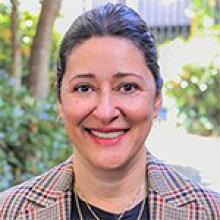
Anahid Gharakhanian
Vice Dean & Director of the Externship Program
Professor of Legal Analysis, Writing, and Skills
Southwestern Law School
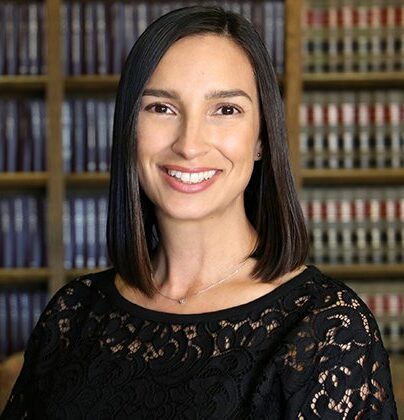
Natalie Rodriguez
Associate Dean for Academic Innovation and Administration
Associate Professor of Law for Academic Success and Bar Preparation
Southwestern Law School
Conversation about increasing diversity and doing better when it comes to inclusion and belonging is everywhere in legal education. What’s critical though is empirically tracking how well we’re actually doing. The Law School Survey of Student Engagement (LSSSE) provides invaluable and sobering data that should serve as a beacon to legal educators’ aspirational goals of cultivating diversity, inclusion, and belonging in their schools and in the profession. LSSSE’s 15-Year Retrospective – The Changing Landscape of Legal Education – tells us that there’s a positive trajectory with minority enrollments from 2004 to 2019.
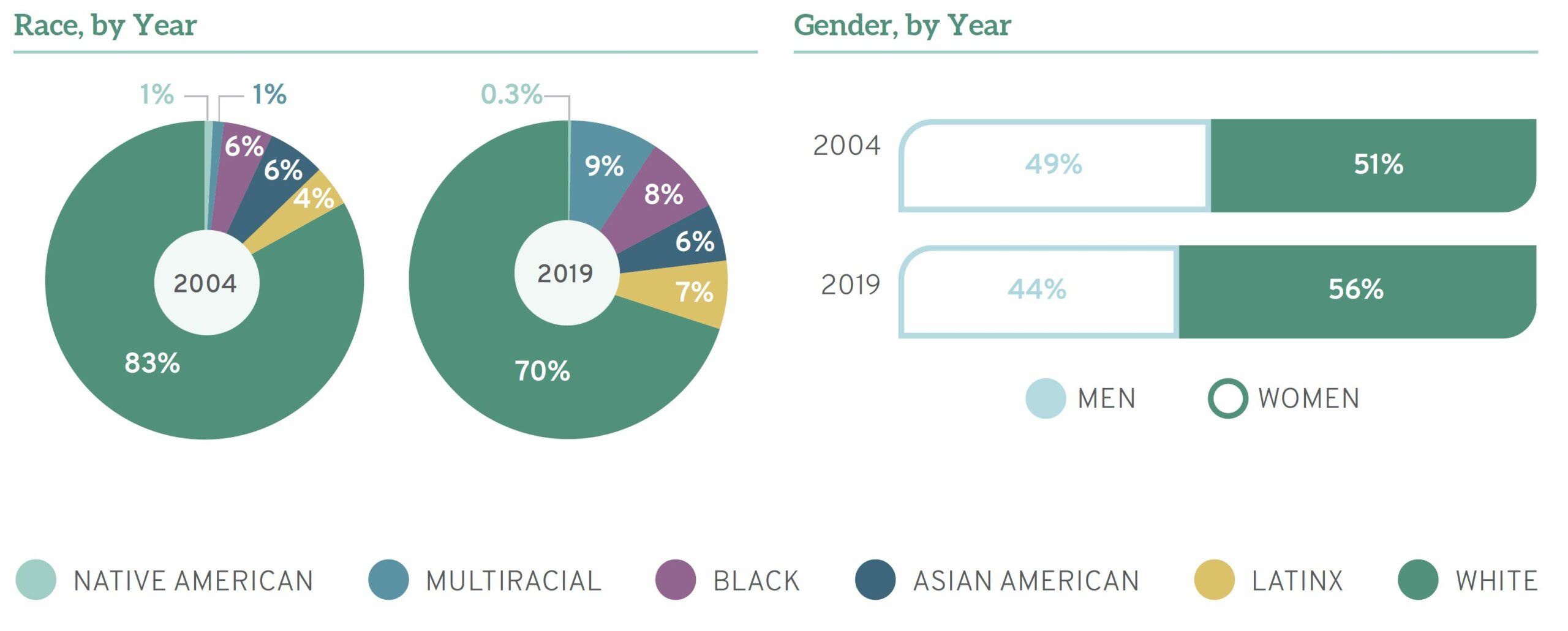
But the jarring news is that minority students’ sense of belonging – especially women of color students– is quite a bit lower than that of White students. As LSSSE’s 2020 Diversity and Exclusion Report points out, “Scholarly research indicates that students who have a strong sense of belonging at their schools are more likely to succeed.”
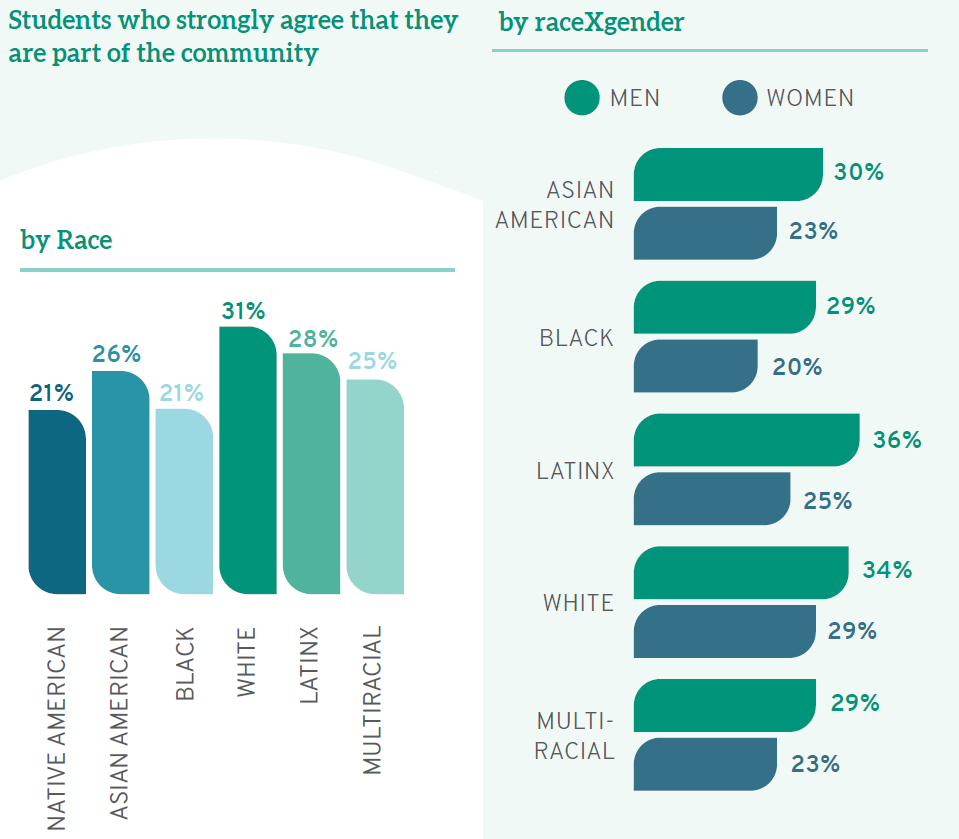
The data unequivocally tells us that we need to do a lot better for ALL law students to succeed. But the effort should start much earlier than when law students start law school. We need rigorous rethinking and innovation in law school admission practices – whereas to date the hyper-focus is on the limited numerical indicators of undergraduate GPA and especially LSAT score.
For the past three years, Southwestern Law School has innovated with such a first-of-its kind approach to admissions practices. The research project and initial results are detailed in “More than the Numbers”: Empirical Evidence of an Innovative Approach to Admission, Minnesota Law Review (Vol. 107, forthcoming), co-authored by the co-authors of this blog and Dr. Elizabeth Anderson, and will be presented at the Minnesota Law Review Symposium, on October 7, 2022, “Leaving Langdell Behind: Reimagining Legal Education for a New Era.” Interestingly, Southwestern’s empirically-based novel approach seems to have provided a notable boost to the matriculants’ sense of confidence or belonging in attending law school. More on that in a bit.
Southwestern’s project is driven by the moral imperative that law schools – as gatekeepers to the legal profession – should commit to innovative and rigorous admissions processes that define merit broadly and provide opportunities based on a spectrum of factors, beyond the traditional numerical indicators. In furtherance of this commitment, several years ago, Southwestern developed an evidence-based tool to more fully and meaningfully assess applicants’ law school potential. This tool goes beyond the limited cognitive measure of the LSAT, which many criticize as an impediment to diversifying law schools and the profession and which at best is only modestly predictive of first year law school performance.
Southwestern’s approach focuses on that group of applicants whose application materials show promise but also raise questions about the applicant’s current readiness for law school. These applicants are invited to participate in a methodical waitlist interview process where they are asked a series of questions based on several factors identified in the IAALS’s Foundation for Practice (“Foundations”) study as necessary for first-year attorneys. Three years into this project and based on hundreds of admission interviews working with Dr. Elizabeth Anderson we have analyzed our approach. The data has produced initial reliability and validity metrics for the measure developed – i.e., a tool that could be used with confidence in the admissions process.
Southwestern’s approach has included three steps. First, Southwestern identified what needs to be measured – i.e., certain foundations necessary for first-year practice as established by the Foundations study and hence assumed to be necessary to law school success. Second, the school identified why these factors need to be measured – i.e., to provide access to legal education with measures that matter. Third, the school designed the empirical research to support the development of a reliable and valid measure of this construct. Relatedly, Southwestern developed a measure of “nontraditional readiness for law school” using a design that focused on a psychometric research design, where psychometrics is the research practice of formal development of reliable and valid measures/assessments. Southwestern has found that the developed tool/measure is measuring what it set out to measure. This tool/measure will produce a score that will then be used in predictive validity analyses, as well as predictive modeling of law school success outcomes.
Interestingly, and beyond the quantitative data, based on comments shared by the interview matriculants, for purposes of adding context to the paper we’ve written about the admissions project, we’ve learned that the interview experience provided a notable boost to their confidence in attending law school. This was not an outcome that Southwestern had hypothesized or planned for but was a palpable part of the comments shared by the matriculants. Seeing the LSSSE data about belonging, it’s imperative that we create a sense of belonging starting with the admissions process.
The matriculant’s comments are indelible. A third-year interview matriculant noted:
I was very nervous when I came to the school for the waitlist interview. But afterward I felt heard and this motivated me. It gave me confidence, and I felt I couldn’t let the school down and I now had the opportunity to follow my purpose.
A second-year interview matriculant noted:
With the waitlist interview, Southwestern made the admissions process more personal and it showed me that the administration really values the lived experience of potential students and wants to hear what I have to say. This gave me confidence about law school and what I can contribute/accomplish.
And a first-year interview matriculant noted:
My waitlist interviewer dug deep and tried to understand me. She heard me, which was incredible. I knew law schools aren’t comfortable taking a chance but I was hoping some schools would want to hear my story and that’s what the waitlist interview did for me. This gave me the chance and confidence to pursue the dream that started with watching Fresh Prince of Bel-Air when I was a kid and thinking it’s so incredible to see Black attorneys and I want to be an attorney.
Our work has been well-received. We recognize, however, there is work left to be done and LSSSE is uniquely positioned to contribute in this area and help drive the necessary change through additional data. As part of its annual survey, LSSSE could include questions designed to gather data on law students’ admissions experiences. As our approach to admissions shows, establishing a sense of belonging can begin well before orientation. This unintended yet profound outcome is worth additional exploration. As indicated in the 2020 Diversity and Exclusion Report, a strong sense of belonging can make the difference in whether a student feels they have the support they need to thrive, especially women of color.
Further, as part of its longitudinal studies, LSSSE could also consider ways to track admissions factors beyond the limited indicators of LSAT and UGPA. The 2020 15-Year Retrospective – The Changing Landscape of Legal Education points out overall drops in UPGAs and LSAT scores.
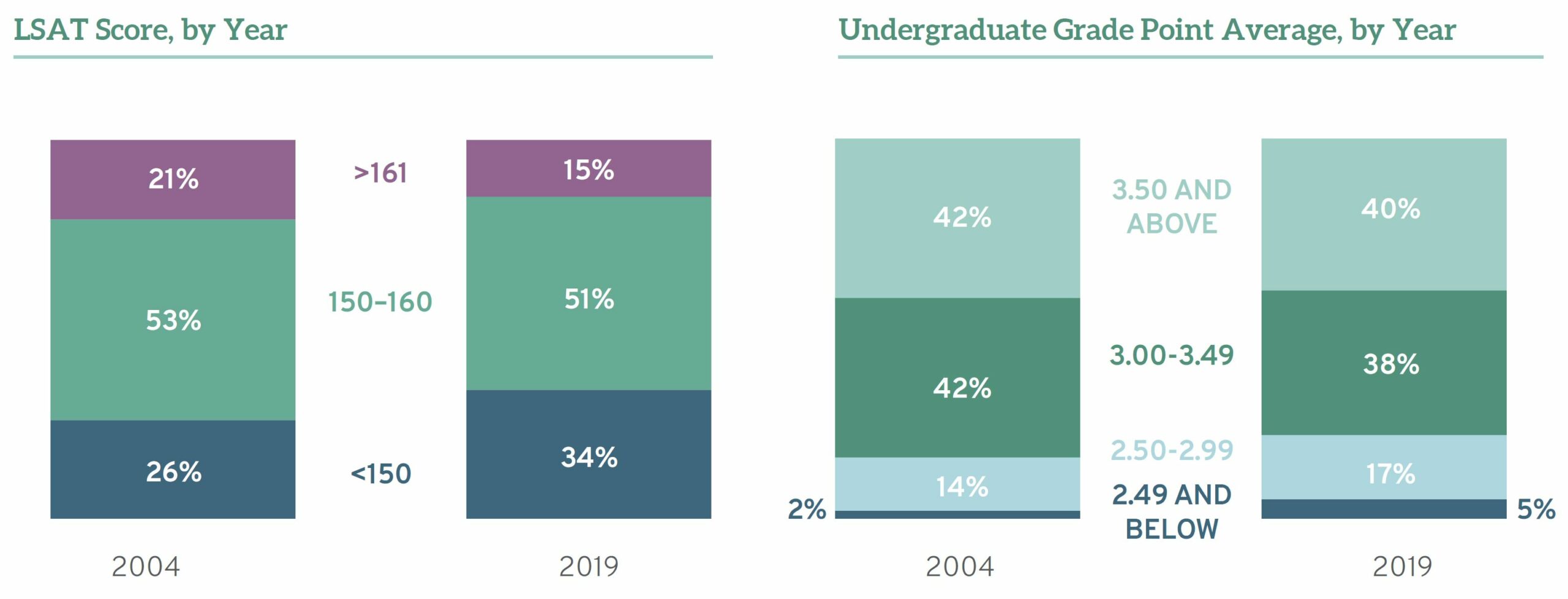
This is helpful information, but the continued hyper-focus on these traditional factors, and not probing into and tracking other admissions-related data, contributes to perpetuation of limiting entry into law school and the profession based on narrow concepts of merit and potential.
These are just a few ideas. But to be sure, empirical inquiry and evidence must lead the way to change in admission practices. With its dedication in working for the betterment of legal education and its rigor in research practices, LSSSE certainly has a critical role to play in encouraging innovative law school admissions practices that more fully and meaningfully assess merit and potential while creating an inclusive and engaging pre-matriculation experience.
